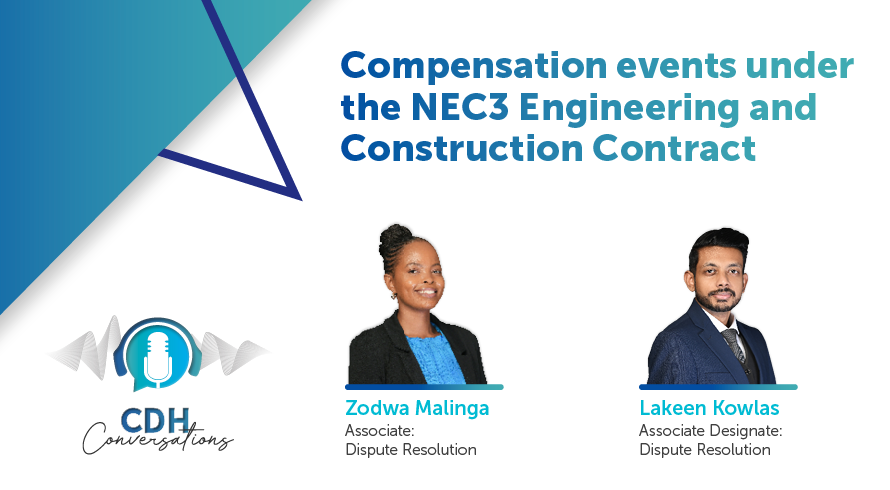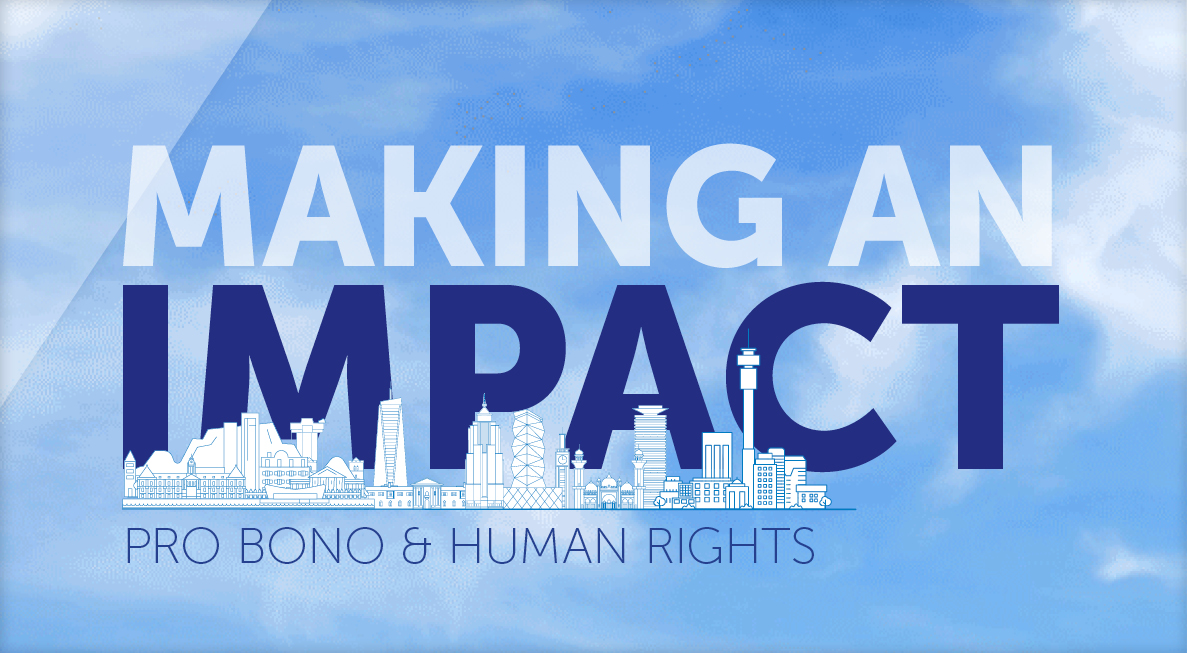Navigating the legal landscape for green investments in Africa
At a glance
- For potential investors eager to tap into Africa's burgeoning green industrial sector, understanding and navigating the continent's complex legal landscape is paramount.
- While the opportunities for sustainable development and lucrative returns are vast, careful due diligence and a thorough grasp of relevant laws, regulations and dispute resolution mechanisms are essential for successful and sustainable investments.
- Many African countries are party to bilateral investment treaties with major investing nations. These treaties typically offer robust protections against expropriation without compensation, provide for fair and equitable treatment, and often provide for recourse to international arbitration for disputes.
Investment protection and treaties
Investors must first consider the layers of investment protection available. Many African countries are party to bilateral investment treaties (BIT) with major investing nations. These treaties typically offer robust protections against expropriation without compensation, provide for fair and equitable treatment, and often provide for recourse to international arbitration for investor-state disputes. Increasingly, regional multilateral investment treaties are also emerging across the continent. Simultaneously, the African Continental Free Trade Area (AfCFTA) includes a dedicated Protocol on Investment (Protocol), aiming to establish a predictable and transparent continental legal framework for investment. While this Protocol has been signed by many member states, it is crucial for investors to note that it is not yet fully effective, as it awaits the necessary ratifications by a sufficient number of countries to enter into force. Nevertheless, its principles are important for guiding future intra-African investment protection and facilitation, signalling the continent’s commitment to a harmonised investment environment. Beyond treaties, each African country possesses its own national investment laws, which outline the specific rights and obligations of foreign investors, investment approval processes and available incentives.
Public-private partnership frameworks
Given the scale of green infrastructure required, public-private partnerships (PPP) will be a dominant model. A significant number of African countries (over 40) have enacted specific PPP legislation. These laws define the types of PPPs, procurement processes, contractual arrangements and critical dispute resolution mechanisms applicable in each country. Investors must thoroughly understand the PPP framework in the specific nation and the precise terms of the project agreement.
A key element within PPPs involves government guarantees and support, which are crucial for making projects ‘bankable’ – attractive enough for lenders to provide financing. These often come in various forms, such as off-take agreements (e.g. power purchase agreements for renewable energy projects), minimum revenue guarantees, political risk guarantees and loan guarantees. The legal enforceability and scope of these guarantees are critical considerations for investors. A guarantee is only as strong as the legal framework underpinning it and the government’s commitment to honour its obligations.
Concerns often revolve around the sovereign risk of the guaranteeing entity and the potential for political interference or changes in policy that could undermine the guarantee’s value. To enhance the bankability of PPP projects and provide comfort to investors, international financial institutions and national governments are actively involved in credit enhancement mechanisms.
The World Bank Group, through its various arms like the International Finance Corporation and the Multilateral Investment Guarantee Agency, offers political risk insurance and credit enhancement products that protect investors against non-commercial risks, including breach of contract by a sovereign. These guarantees leverage the World Bank’s strong credit rating to lower the risk profile of projects in developing countries, making them more attractive to private lenders and institutional investors.
Similarly, South Africa’s National Treasury, recognising the importance of attracting private finance, has been proactive in developing its own credit enhancement mechanisms. Building on the success of its Renewable Energy Independent Power Producer Procurement Programme, which included robust government support structures, National Treasury is developing a blended financing risk-sharing platform. This platform aims to provide a credit guarantee vehicle, initially focusing on the energy sector, to de-risk public-sector projects for private developers and lenders. By providing such credit enhancements, both the World Bank and the South African Government aim to mobilise greater private capital, lower financing costs for crucial infrastructure projects, and ultimately accelerate green industrial development across Africa.
Environmental regulations and compliance
Green industrial projects, by their very nature, are subject to stringent environmental regulations. Investors must ensure comprehensive environmental impact assessments are conducted and approved by relevant authorities, demonstrating strict compliance with national and, where applicable, international environmental standards. Understanding and adhering to national laws on pollution control, waste management and specific sector-related regulations (e.g. for renewable energy licensing or land use) is paramount.
Taxation and incentives
Many African countries, including South Africa, offer specific tax incentives for green investments, such as reduced corporate income tax rates, accelerated depreciation allowances, and customs duty exemptions for imported green machinery. Investors should thoroughly assess the eligibility criteria and duration of such incentives. A clear understanding of general tax regimes (corporate income tax, value-added tax, withholding tax) and the benefits offered by Special Economic Zones, which often provide preferential tax regimes and streamlined procedures, is also essential.
Labour laws
Investors must comply with national labour laws regarding employment contracts, wages, working conditions, health and safety, and trade union rights. Investors should also be aware of any local content requirements mandating the use of local labour, materials or services, and regulations related to skills transfer and training of local personnel, especially for advanced green technologies.
Intellectual property protection
Protecting intellectual property is crucial for technology-driven green investments. Investors must understand national intellectual property laws and leverage regional intellectual property organisations like the African Regional Intellectual Property Organisation (ARIPO) and African Intellectual Property Organisation (OAPI), which provide for regional patent, trademark, and industrial design protection. Beyond these, the AfCFTA Protocol on Intellectual Property Rights (IP Protocol) specifically aims to harmonise and enhance the protection of various IP rights within the African Continental Free Trade Area. This includes ensuring consistent rules and principles for promoting, protecting, cooperating, and enforcing IP rights across the continent. For investors in the green economy, this AfCFTA IP Protocol, once effective, means a significantly more predictable and secure environment for safeguarding technological innovations. It facilitates the easier and more secure cross-border transfer and licensing of green technologies, such as patented designs for renewable energy components or proprietary processes for critical mineral beneficiation. This harmonisation is vital for fostering innovation, enabling secure technology transfer, and encouraging trade in IP-intensive green goods and services across the vast continental market. Robust legal agreements are therefore vital for technology transfer and licensing, ensuring that innovations driving the green economy are adequately protected and can be traded effectively across the continent.
Data Protection and Privacy
As the green economy increasingly relies on data-driven solutions – from smart grids and climate monitoring to e-mobility and precision agriculture – data protection and privacy considerations become paramount. Investors must understand and comply with the evolving landscape of data protection laws across Africa. Many countries, including South Africa with its Protection of Personal Information Act (POPIA), and countries like Kenya, has updated its data privacy laws with the Data Protection Act, 2019, have enacted comprehensive legislation often based on global principles like those found in the GDPR. Non-compliance can lead to significant financial penalties and reputational damage. Therefore, establishing robust data governance frameworks, ensuring data security, and adhering to strict privacy principles are essential for any green industrial investment involving the collection, processing, or transfer of personal or sensitive data.
Foreign exchange and repatriation of profits
Understanding currency exchange regulations, including any restrictions on foreign currency accounts or repatriation of profits and capital, is critical. While many African countries have liberalised these policies, nuances exist. Compliance with reporting requirements for foreign currency transactions is also crucial.
Dispute resolution mechanisms
When disputes arise, investors need clear pathways for resolution. While local courts are always an option, foreign investors often prefer international arbitration as a more neutral and specialised mechanism, particularly for investor-state disputes that arise from alleged breaches of investment protections guaranteed under enforceable BITs or other international investment agreements. The enforceability of arbitral awards in the host country, often governed by conventions like the New York Convention, is a key consideration. The AfCFTA Dispute Settlement Body offers a mechanism for disputes between state parties. Crucially, when the AfCFTA Protocol becomes effective, it is expected to provide a framework for investor-state dispute settlement within the continental bloc, aiming to offer a harmonised approach to resolving investment disputes among African states and investors from other AfCFTA member countries. Furthermore, there is growing international discourse, including within the UNCITRAL Working Group III, about establishing a multilateral investment court or a permanent investment court system to address perceived shortcomings of traditional ad hoc investor-state arbitration, such as consistency and impartiality. While still under negotiation globally, the concept of a standing investment court could eventually influence dispute resolution for green investments in Africa, potentially offering a more standardised and institutionalised avenue for resolving investor grievances.
Conclusion
Navigating the intricate legal landscape of Africa’s diverse jurisdictions can be challenging. For investors seeking to capitalise on the continent’s green industrialisation drive, securing the right legal advice from experienced practitioners is not merely advantageous but essential. Expert guidance helps to structure investments optimally, mitigate potential risks, ensure full compliance with evolving regulatory frameworks, and successfully execute projects from initial due diligence through to operational phases and, if necessary, dispute resolution. Such strategic counsel is key to unlocking Africa’s vast green opportunities and ensuring a smooth journey through its unique investment environment.
The information and material published on this website is provided for general purposes only and does not constitute legal advice. We make every effort to ensure that the content is updated regularly and to offer the most current and accurate information. Please consult one of our lawyers on any specific legal problem or matter. We accept no responsibility for any loss or damage, whether direct or consequential, which may arise from reliance on the information contained in these pages. Please refer to our full terms and conditions. Copyright © 2026 Cliffe Dekker Hofmeyr. All rights reserved. For permission to reproduce an article or publication, please contact us cliffedekkerhofmeyr@cdhlegal.com.
Subscribe
We support our clients’ strategic and operational needs by offering innovative, integrated and high quality thought leadership. To stay up to date on the latest legal developments that may potentially impact your business, subscribe to our alerts, seminar and webinar invitations.
Subscribe




